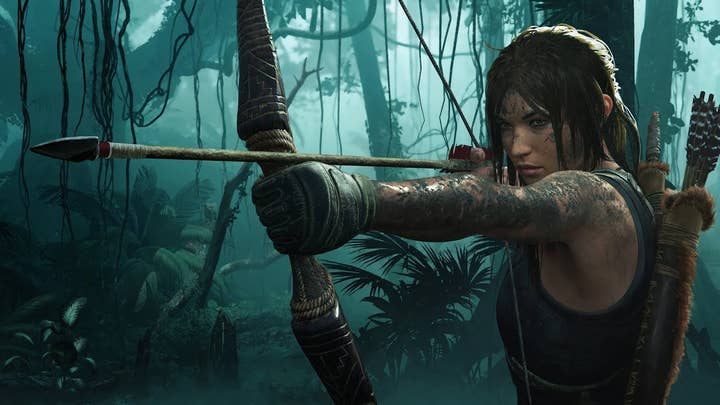Embracing disaster | Opinion
In the absence of the low-interest economic climate that created it, the recklessness and unsustainability of Embracer Group’s aggressive acquisition strategy is laid bare
Sign up for the GI Daily here to get the biggest news straight to your inbox
It’s hard not to feel cynical about the state of the games business this year.
On one hand, it has been a banner year for games; from much-anticipated sequels to note-perfect remakes and smart, innovative indie titles, the year has been filled end to end with critical darlings and commercial success.
On the other hand, every week brings news of a new set of companies laying off staff – in some cases, “restructuring” in ways that cut out a significant fraction of their overall workforce. It’s a great year for games and yet a terrible one for many of the people who make them.
In the midst of all the layoffs happening across the industry, the news that Embracer Group has now laid off over 900 staff as part of its ongoing restructuring looks like just business as usual; just another major company slashing headcount to save money. What’s actually happening here, however, is on a different level to most of the other restructuring being done around the industry – even if some of the root causes are the same.
Embracer Group spent the best part of the past decade in a hyper-aggressive acquisition mode, building itself from a small publisher of mid-range AA games into the parent company of one of the largest networks of development studios ever assembled, plus a huge library of IP and a variety of side businesses in other media. Now, that rapidly assembled house of cards is wobbling precariously and threatening to tumble. If it does, if things play out as badly as they could, then this ten-year rise and fall will ultimately turn out to have been the worst case of corporate vandalism in the industry’s history.
If things play out as badly as they could, this ten-year rise and fall will turn out to be the worst case of corporate vandalism in the industry’s history
In a sense, the Embracer story is simple – and is just an exaggerated version of what has happened at many other companies recently. The firm took advantage of the ready availability of investment cash during an era of incredibly low interest rates to go on a decade-long spending spree that saw it acquire dozens of game studios and various other businesses. The original idea was to bring together a lot of “AA” studios – studios which pretty consistently released smaller games that were popular with relatively niche audiences, rather than spending years of development time and tens of millions of dollars on big swings at the AAA market – with the theory being that in doing so, you could create a robust publisher supported by dozens of minor franchises, unlike existing major publishers which often rely on a small number of tentpole franchises to keep the business afloat.
That’s a good theory, one which might even have worked, but at some relatively early point in the process of building up that publishing group, Embracer’s bosses seem to have realised just how easy it was, in the free-and-easy money era of the mid 2010s, to fund acquisitions with investment, grow the company with said acquisitions, and then use the company’s new size to shop around for more investment.
Consequently, Embracer’s acquisitions lost their focus – first losing focus on studios specialising in smaller, more affordable games with shorter development cycles, and ultimately losing focus on games themselves, with even comic companies and video distributors being caught up in a net tha was cast increasingly wide in search of companies to buy.
Embracer, at some point, became simply an engine for acquiring companies – by my rough count, it acquired over 20 studios and companies in 2020 alone. Along the way, it had ended up as parent company to studios noted for big AAA titles and even MMORPGs, not to mention a brace of Square Enix’ Western studios, the acquisition of which made Embracer the owner of distinctly AAA franchises like Tomb Raider and Deus Ex.
On paper, Embracer had one of the most impressive line-ups of studios and IP of any publisher out there. In practice, it was a company with near-zero experience of developing or releasing major AAA titles, which now owned a ton of AAA studios and IP – let alone all the other parts of its sprawling empire which most of the firm’s management had equally little experience with.
For a short while, that didn’t matter. The job of management was to keep the acquisition engine running – sustaining growth by attracting more investment and using it to buy more companies. While some of these companies were profitable in themselves, each acquisition drove Embracer’s overall cost base higher; simply keeping up with monthly outlays for a company of this size required constant cash injections.

It’s not clear what, if anything, the firm’s management thought the endgame would be. One oft-floated speculation is that they thought they were building a diverse publisher that would make a tempting acquisition target for some huge company aiming to further their gaming ambitions. It’s possible that they genuinely thought that at some point this sprawling empire would actually start paying for itself in a meaningful way, so the external investment needed to sustain the millions upon millions being burned every month was only a temporary state.
Ultimately, neither of those things happened. Instead, the world changed, interest rates shot up, and the Saudi petrodollars that had been scattered like water around high risk businesses in the 2010s suddenly evaporated. Embracer didn’t score a $2bn deal they’d expected (reportedly with a Saudi-owned media investor); the house of cards came tumbling down, faced with the reality that without constant injections of external cash the business they have built cannot sustain itself.
It’s not clear what, if anything, Embrace Group’s management thought the endgame would be
Embracer was far from alone in this approach – a great many of the other companies that are currently laying off staff also used the low-interest climate of the 2010s to try to turbo-charge their growth by using investment to pay for operating costs, and now find themselves forced to cut back in the face of a much less accommodating investment climate. Nobody else, however, pursued that strategy on the scale that Embracer did.
What happens to all of those studios and IPs that Embracer bought is now anyone’s guess. There’s no obvious buyer for the business overall – and it’s worth noting that Embracer bought so many European companies in particular that while the company’s collapse would be a particularly painful disaster for the industry in Europe, any bid for the firm from potential investors like China’s Tencent would almost certainly attract high levels of scrutiny from the EU.
The most likely outcome is a scramble to divest the most valuable parts of the rapidly assembled portfolio; but Embracer finds itself in a terrible market for that kind of activity. It bought all of its studios when money was growing on trees, with near-zero interest rates making it easy to put together the cash for a huge deal. Now it’s trying to offload assets when interest rates are at their highest in decades, making it harder to fund acquisitions (unless you’re a giant company with billions in the bank – and the most likely acquirer among those, Microsoft, is going to be digesting its last big meal for a while yet) and thus both narrowing the pool of potential buyers, and suppressing the potential price.
There’s nothing positive to say about this situation. Embracer’s management is no doubt working hard to try to hold things together – but that’s the least they can do after the sheer recklessness of their approach in the past ten years. Even in the most positive scenarios, we’re almost certainly about to lose a large number of studios and other industry companies, some of them hugely significant and storied firms, all of them staffed with talented people who are facing unbearable uncertainty and instability as this situation plays out.
Embracer’s legacy risks being one of scorched earth, especially for European game development. A company that kept buying studio after studio despite rarely actually releasing any games was always too good to be true – but while many people did try to sound the alarm in the past ten years, the lure of all that low-interest cash driving the acquisitions was too appealing for anyone to really question the sustainability of the whole affair.
Unfortunately, it’s the regular employees of Embracer’s acquired studios who will now end up paying the price.
Sign up for the GI Daily here to get the biggest news straight to your inbox

